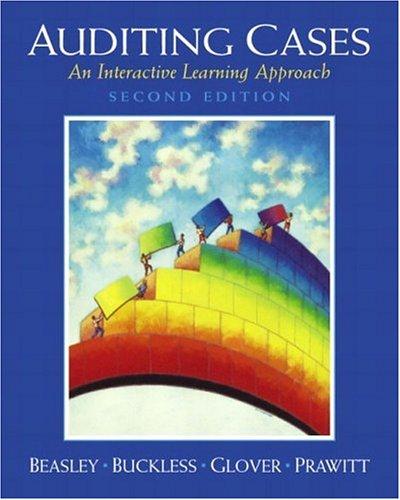Question
NAME ______________________ PERIOD ___________ Warren Court The Warren Court: The Expanding Role of Government In 1953, President Eisenhower appointed former California governor Earl Warren as
NAME ______________________ PERIOD ___________ Warren Court The Warren Court: The Expanding Role of Government In 1953, President Eisenhower appointed former California governor Earl Warren as chief justice of the U.S. Supreme Court. Eisenhower expected him to keep the Court on its conservative course of respecting past decisions or precedents. Instead Warren became an activist jurist when a year later the Supreme Court broke all precedent with its ground-breaking decision in Brown v. Board of Education of Topeka Kansas. In the 1960s the court continued to make decisions with far-reaching effects. In the 1966 case of Miranda v. Arizona, the Court overturned the guilty verdict of Ernesto Miranda. Miranda had been convicted on the basis of a confession obtained without access to a lawyer. The Court ruled that this violated the Fifth Amendment. As a result of the Miranda ruling, the police must now advise arrested persons of their right to remain silent and to have legal counsel. The Court made other rulings to protect the rights of the accused. Many critics argue that such rulings make it more difficult to combat crime. Others believe that the rulings help prevent innocent people from being convicted of crimes they did not commit. Perhaps more important than any individual decision was Warren's approach to the law. Unlike most earlier chief justices, Warren believed that the Constitution must be interpreted flexibly, in light of what the Framers wrote but also in light of what best serves the public interest today. The Warren Court began to strike down laws that the justices regarded as unfair, regardless of past decisions or the exact wording of the Constitution. This concept of "judicial activism" has stirred controversy. Then and later, critics argue that following their own ideas of fairness gives judges too much power and they believe that only what was originally written in the Constitution should be written into law. Other Constitutional scholars believe that the Constitution was written to be a "living document" subject to growth and change. 1. Describe how the U.S. Supreme Court took on a more activist role under Chief Justice Earl Warren.
2. How did the Supreme Court decision in Miranda v. Arizona affect law enforcement?
3. Do you agree with Chief Justice Warren's belief that the Constitution should be interpreted to reflect the changes to our nation over time, or should decisions rely only on the original words as written in the Constitution. State and Explain your conclusion.
Step by Step Solution
There are 3 Steps involved in it
Step: 1

Get Instant Access to Expert-Tailored Solutions
See step-by-step solutions with expert insights and AI powered tools for academic success
Step: 2

Step: 3

Ace Your Homework with AI
Get the answers you need in no time with our AI-driven, step-by-step assistance
Get Started


